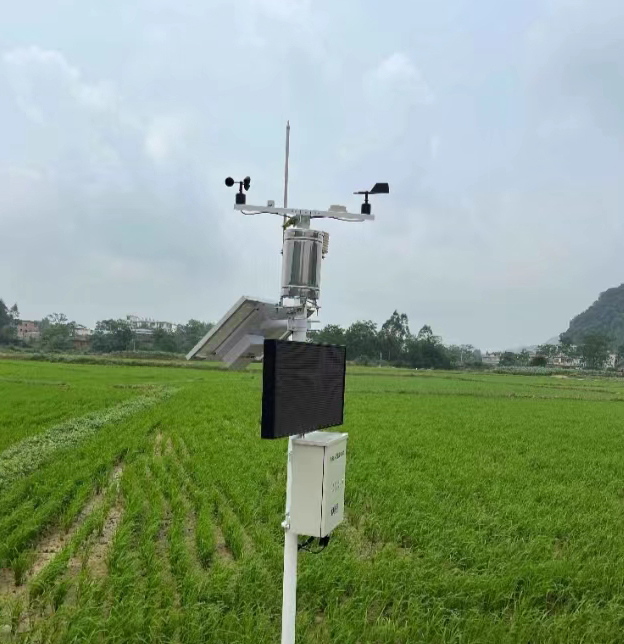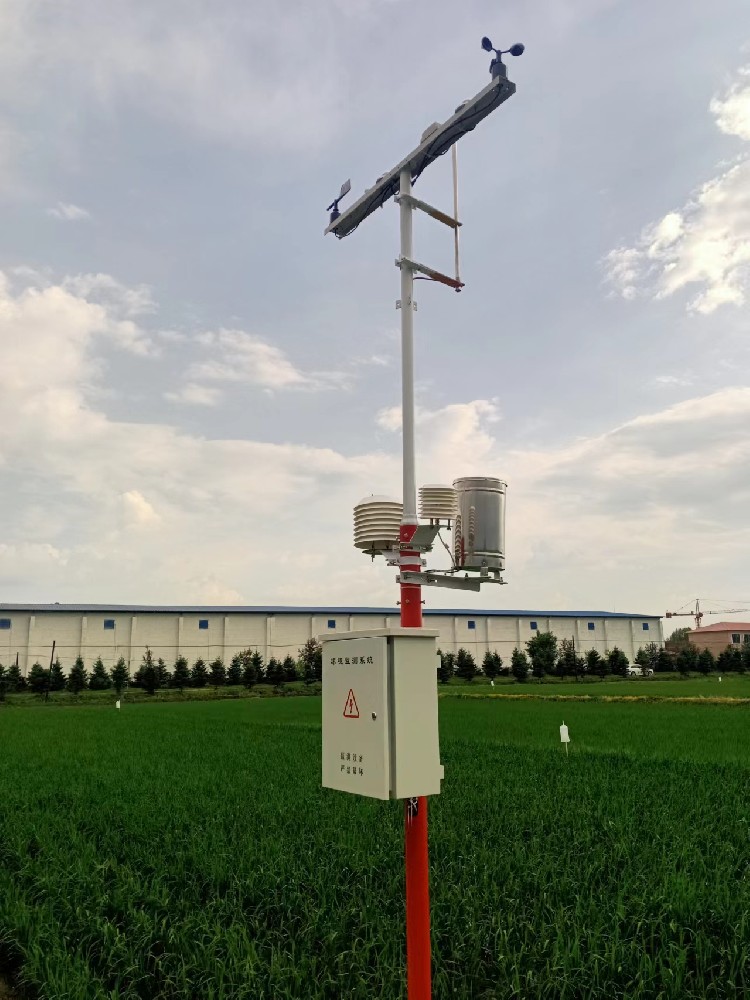

— Blogs —
—Products—
 Consumer hotline +8618073152920
Consumer hotline +8618073152920 WhatsApp:+8615367865107
Address:Room 102, District D, Houhu Industrial Park, Yuelu District, Changsha City, Hunan Province, China
Product knowledge
Time:2024-08-28 16:09:19 Popularity:2492
Weather stations are areas where real-time meteorological and environmental data monitoring takes place, and where data are collected through a variety of sensors and measuring devices to support weather forecasting, climate research and environmental monitoring. These data include a wide range of meteorological elements such as temperature, humidity, wind speed, wind direction and rainfall, as well as environmental parameters such as soil moisture, evaporation and radiation. Weather stations can be classified into various types according to their usage, installation and accuracy, such as portable weather stations, high-precision weather stations, highway weather stations, etc. to meet different scenarios and needs.
There is no fixed standard for the lifespan of a weather station. The lifespan of a weather station depends on several factors, including the quality of construction of the station, the materials used, the conditions of installation, the level of maintenance it receives and the frequency of use. The following are some general guidelines.
1. Quality of equipment: The quality of equipment in a weather station, such as sensors, data collectors, power supply systems, etc., has a direct impact on the stability and longevity of the whole weather station. High-quality equipment and components usually have a longer service life and better performance stability.
2. Installation environment:Weather stations exposed to harsh weather conditions such as extreme temperatures, high winds, heavy precipitation or corrosive salt spray may have a shorter lifespan than those in milder climates.
3. Maintenance:Regular maintenance, including cleaning, calibration and replacement of worn parts, can greatly extend the life of a weather station.
4. Usage:Continuous operation without proper maintenance will result in faster wear and tear.
- Consumer Grade Weather Stations:Typical lifespan is about 5-10 years. These are usually less expensive models designed for personal or light professional use.
- Professional Grade Weather Stations: Can last 10 to 20 years or more. These are high-end models used by meteorological agencies, universities and research institutes.
- Research Grade Weather Stations:These weather stations can last up to 20 years or more, especially if they are well maintained and used in a relatively benign environment.

- Sensors:Individual sensors may need to be replaced periodically, especially if they are subject to component wear or damage.
- Batteries: In remote or unpowered locations, battery life will be a factor and batteries will need to be replaced periodically.
- Electronics:Electronic components, including circuit boards and displays, may degrade over time due to environmental factors such as heat, humidity and corrosion.
- Structural Components:Enclosures, brackets, and other structural components should be durable, but may still need to be replaced due to wear or damage.

Regular maintenance and servicing is essential to extend the life of your weather station. This includes checking the installation of the equipment, power connections, cleaning the surfaces of the equipment, and calibrating the sensors on a regular basis. Identifying and addressing potential problems in a timely manner can prevent wider equipment failures and shorter lifespans.
The operation and maintenance of weather stations require some financial support. Lack of sufficient funding may lead to problems such as untimely maintenance and accelerated aging of equipment, which may affect the lifespan of weather stations. In addition, policy support from the government and related organisations also has an impact on the lifespan of weather stations, such as the provision of financial subsidies and technical support.
Behaviours such as improper human operation, misuse or intentional damage may also negatively affect the lifespan of weather stations. Therefore, strengthening personnel training, improving operational standardisation and enhancing safety supervision are also important measures to safeguard the lifespan of weather stations.
With the continuous development of science and technology, new meteorological observation techniques and equipment are constantly emerging. In order to maintain the accuracy and reliability of meteorological observations, meteorological stations may need to regularly upgrade their equipment.
In summary, the lifespan of a weather station is a relatively complex issue that is affected by a combination of factors. Under ideal conditions of use, a high-quality weather station can operate for several years or even longer. However, in practice, the lifespan of a weather station may vary due to various factors. Therefore, in order to ensure the long-term stable operation of weather stations, it is necessary to take into account such factors as the quality of the equipment, the conditions of use, the state of maintenance and technological advances, and to take corresponding measures to extend their lifespan.
Related recommendations
Sensors & Weather Stations Catalog
Agriculture Sensors and Weather Stations Catalog-NiuBoL.pdf
Weather Stations Catalog-NiuBoL.pdf
Related products
 Combined air temperature and relative humidity sensor
Combined air temperature and relative humidity sensor Soil Moisture Temperature sensor for irrigation
Soil Moisture Temperature sensor for irrigation Soil pH sensor RS485 soil Testing instrument soil ph meter for agriculture
Soil pH sensor RS485 soil Testing instrument soil ph meter for agriculture Wind Speed sensor Output Modbus/RS485/Analog/0-5V/4-20mA
Wind Speed sensor Output Modbus/RS485/Analog/0-5V/4-20mA Tipping bucket rain gauge for weather monitoring auto rainfall sensor RS485/Outdoor/stainless steel
Tipping bucket rain gauge for weather monitoring auto rainfall sensor RS485/Outdoor/stainless steel Pyranometer Solar Radiation Sensor 4-20mA/RS485
Pyranometer Solar Radiation Sensor 4-20mA/RS485
Screenshot, WhatsApp to identify the QR code
WhatsApp number:+8615367865107
(Click on WhatsApp to copy and add friends)
